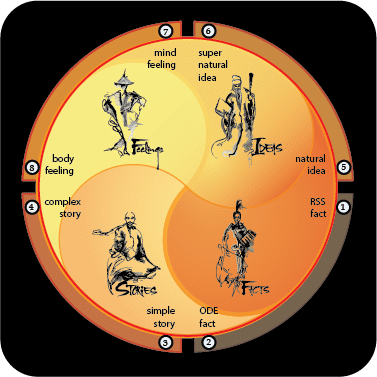Is Psychology a Science?
The short answer is, as currently practiced, sadly, mostly not. And yes, there is a part of psychology which is good science; the part wherein scientists gather observations without interpreting this data. Unfortunately, modern psychology then falls apart, when it claims to know what this data implies about human nature. Why? Because they base most of these claims on the false belief that everything we do, we do for reasons.
But if this is true, then why does psychology, as a business, continue to grow and thrive? My answer is surprisingly simple and centers on one of the least known aspects of human nature. Here, the best known example of this oversight occurs when a therapist asks the question, “how did that make you feel?” Ostensibly, this question is kind and makes sense. It’s also often well intended. However, most people hate being asked this question. Why? Because feelings arise when the mind exceeds its capacity to express itself in words.
Find the words and the feelings stop.
Now take a moment to consider what this means about what goes on in talk therapy. The more psycho-logic the therapist pushes in a person’s direction, the less access this person has to their feelings. When these folks then feel “better,” it’s mainly because they feel less, not better. Which is why, when they stop coming, most injuries simply resurface in new and more insidious forms.
Another example lies in the way psychologists diagnose people. To see what I mean, open their diagnostic manual (currently, the DSM-V) to any page. Now read the list of symptoms. Now open this book to any other page and do the same. Then open it to yet any other page and do this yet again.
What you’ll find is that many diagnoses overlap so badly that it’s hard to know which condition a person has. This leads many people to end up with multiple diagnoses over the course of treatment, sometimes several at once.
Psychologists call this, “differential diagnosis.” Translation. Many conditions overlap so badly that the therapist is told to decide based largely on the differences, and not to worry about the rest. In truth, few people have all the symptoms or even most of the symptoms of their condition. More on this in a moment.
Please realize, none of these failures are due to psychologists being lazy, bad, or uncaring. They’re mainly due to a clear and prevalent lack of scientific rigor in psychological theories. For example, consider the big one: scientifically defining the nature of a wound. Not surprisingly, psychology has not only failed to do this. It’s also failed to scientifically define how and when something heals.
In lieu of these scientific definitions, therapists must then do their best to muddle through. They do this largely by imitating other published or successful therapists. The thing is, anytime you’re not yourself, all manner of problems arise. Anxieties, depressions, self esteem problems. And tendencies to burnout.
The point is, a “science” which can’t properly define what it’s claiming to address is not a proper science. So no, modern psychology isn’t a proper science.
Admittedly, defining what would have to change to make it a proper science is not so easy either.
